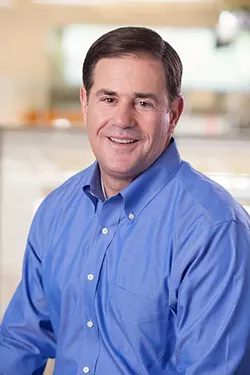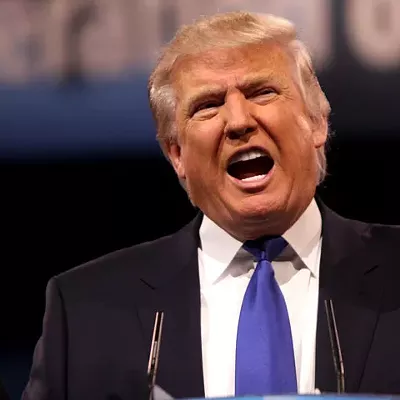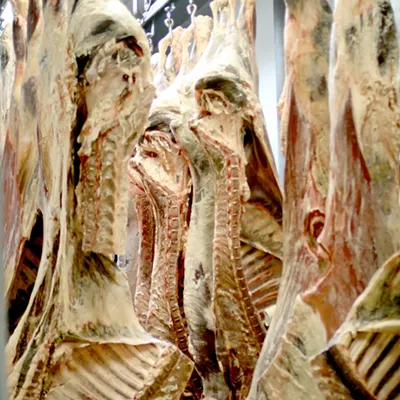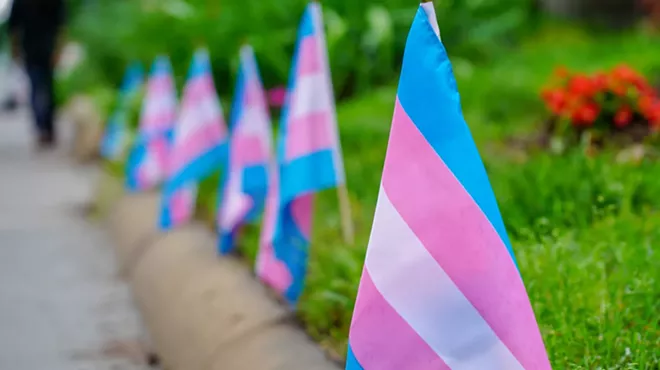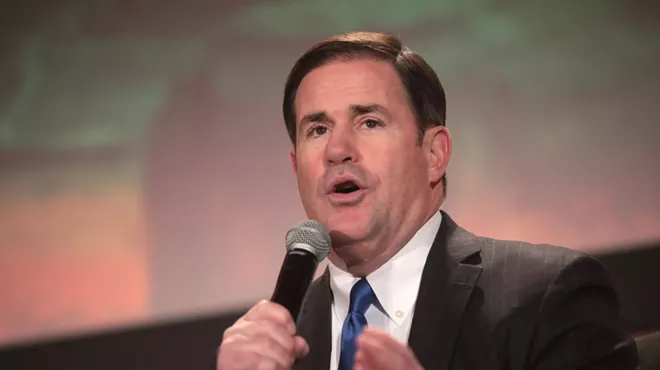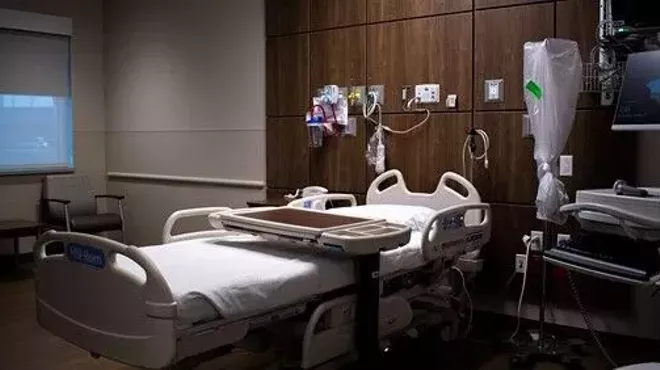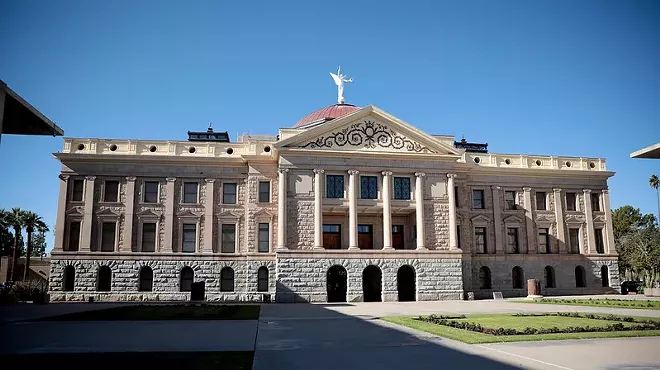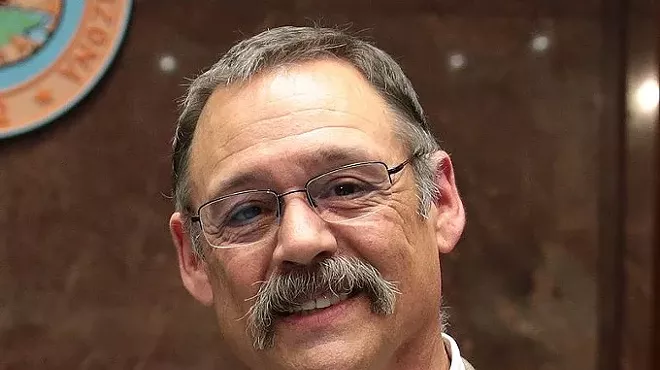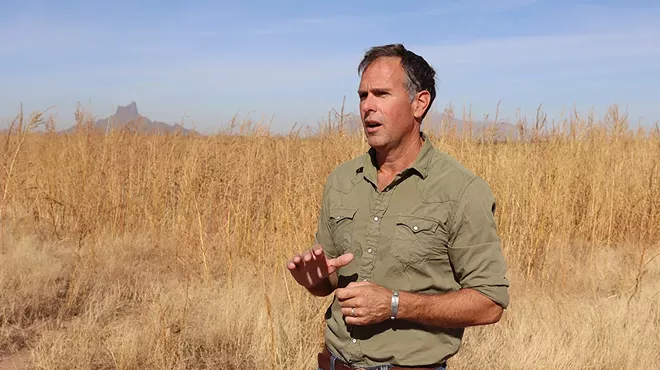Thursday, July 23, 2020
COVID-19 in Arizona: Ducey asks Congress for employment support
PHOENIX – Gov. Doug Ducey has asked Arizona’s congressional delegation to focus on unemployment and other matters important to Arizonans in the next federal COVID-19 relief package.
Ducey’s July 21 letter seeks funds to guarantee the unemployed will be eligible to receive at least 100% of their weekly earnings, and to replenish the state’s $1 billion unemployment trust fund, which has paid out $640 million since the pandemic began.
“We know we will continue to have needs over the coming weeks and months and we are working to be good stewards of those dollars to the benefit of all Arizonans,” Ducey wrote.
The governor also asked for an extension beyond the Dec. 30 deadline for tribal leaders to spend money allocated by Congress “to ensure they can target their highest areas of need, including infrastructure that will allow them to continue providing needed services.”
A spokeswoman for Sen. Martha McSally, R-Arizona, told The Arizona Republic the senator is “deeply engaged” in crafting the next relief package, a followup to the CARES Act Congress passed in March.
“Employees who are unable to return to work should receive sustained financial relief with expanded unemployment benefits,” McSally said in a later statement. “Congress should provide more support to small businesses that continue to be impacted by restrictions so they can stay afloat.”
Sen. Kyrsten Sinema, D-Arizona, also wants support for small businesses, and she has requested more money for the Paycheck Protection Program, which has helped businesses large and small stay afloat during the shutdown.
Additionally, Sinema is seeking additional support for public health and has voiced concerns about the pandemic’s spread in Arizona.
Sinema told the Republic she is “deeply alarmed by the rising numbers of cases, hospitalizations and death rates.”
“Our public health and the health of our economy are inseparable; economic security for hardworking Arizonans can only be achieved with comprehensive and effective management of the SARS-CoV-2 health pandemic,” she said.
McSally, who’s up for election in November, also noted the need for support for medical professionals and patients.
“As with the CARES Act, I will continue to fight to ensure our frontline health care heroes have what they need to care for patients,” she said, adding that she would like more funding for testing, treatments, cures and vaccines.
The governor also asked Congress to deposit more money into the Low Income Home Energy Assistance Program, which helps Arizonans escape record-breaking heat while they’re indoors during the pandemic.
As of Wednesday, July 22, the Arizona Department of Health Services reported a total of 150,609 cases of COVID-19 and 2,974 deaths in the state. On Wednesday alone, 1,926 new cases and 56 new deaths were reported. Officials said 1,027,125 tests for COVID-19 have been completed in public and private labs in Arizona, and 12.5% of tests have come back positive for the novel coronavirus that causes the disease.
Update from nurse who stood up to lockdown protesters
An Arizona nurse who became the subject of national headlines when she stood in front of protesters at the Capitol in April spoke to The Arizona Republic about what it was like to be in the spotlight.
“It felt surreal, just feeling like a little nurse who really wanted people to wear masks and take this thing seriously,” Phoenix intensive care nurse Lauren Leander said.
The state’s actions have been troubling at times, she said, adding, “it was heartbreaking for us to watch our state open up like that on Memorial Day Weekend.”
Apache Junction goes remote for first day of school
Tuesday was the first day of school for the Apache Junction Unified School District, putting it among the first school districts to start school amid the pandemic, Fox10 reported. The first day was taught remotely, in a classroom by themselves. District officials practiced online learning during the summer, so they felt they were prepared to teach remotely.
Mesa teachers organize motorized march
A group of Arizona educators took to the streets of Mesa on Wednesday to call on the state to wait until it’s safe to reopen schools, the East Valley Tribune reported. About 30 vehicles participated in the 90-minute “march” through downtown and west Mesa.
“Obviously, we would prefer to go into the classroom first and foremost. But of course, the epidemic is the thing that we need to focus on and we need to control first and foremost,” Judy Robbins, a special education teacher, told the website.
Martial arts studios turned into ‘Edu-Camp’
To help working parents cope with remote schooling’s demands, Lee’s ATA Martial Arts studios are being transformed into co-working spaces for kids. Owner Michelle Lee is a parent herself and told ABC15 that her “Edu-Camp” will make use of more than a dozen studios across metro Phoenix, where the 4,000- to 6,000-square-foot spaces will allow working parents to drop off their kids during school hours. Safety protocols include capping class sizes at 20, arranging desks 10 feet apart and checking students’ temperature three times a day.
VA hospital makes beds available to nonveteran COVID-19 patients
The Department of Veterans Affairs has opened 10 beds in the Carl T. Hayden VA Medical Center to coronavirus patients who are not military veterans, ABC15 reported.
Ducey’s July 21 letter seeks funds to guarantee the unemployed will be eligible to receive at least 100% of their weekly earnings, and to replenish the state’s $1 billion unemployment trust fund, which has paid out $640 million since the pandemic began.
“We know we will continue to have needs over the coming weeks and months and we are working to be good stewards of those dollars to the benefit of all Arizonans,” Ducey wrote.
The governor also asked for an extension beyond the Dec. 30 deadline for tribal leaders to spend money allocated by Congress “to ensure they can target their highest areas of need, including infrastructure that will allow them to continue providing needed services.”
A spokeswoman for Sen. Martha McSally, R-Arizona, told The Arizona Republic the senator is “deeply engaged” in crafting the next relief package, a followup to the CARES Act Congress passed in March.
“Employees who are unable to return to work should receive sustained financial relief with expanded unemployment benefits,” McSally said in a later statement. “Congress should provide more support to small businesses that continue to be impacted by restrictions so they can stay afloat.”
Sen. Kyrsten Sinema, D-Arizona, also wants support for small businesses, and she has requested more money for the Paycheck Protection Program, which has helped businesses large and small stay afloat during the shutdown.
Additionally, Sinema is seeking additional support for public health and has voiced concerns about the pandemic’s spread in Arizona.
Sinema told the Republic she is “deeply alarmed by the rising numbers of cases, hospitalizations and death rates.”
“Our public health and the health of our economy are inseparable; economic security for hardworking Arizonans can only be achieved with comprehensive and effective management of the SARS-CoV-2 health pandemic,” she said.
McSally, who’s up for election in November, also noted the need for support for medical professionals and patients.
“As with the CARES Act, I will continue to fight to ensure our frontline health care heroes have what they need to care for patients,” she said, adding that she would like more funding for testing, treatments, cures and vaccines.
The governor also asked Congress to deposit more money into the Low Income Home Energy Assistance Program, which helps Arizonans escape record-breaking heat while they’re indoors during the pandemic.
As of Wednesday, July 22, the Arizona Department of Health Services reported a total of 150,609 cases of COVID-19 and 2,974 deaths in the state. On Wednesday alone, 1,926 new cases and 56 new deaths were reported. Officials said 1,027,125 tests for COVID-19 have been completed in public and private labs in Arizona, and 12.5% of tests have come back positive for the novel coronavirus that causes the disease.
Update from nurse who stood up to lockdown protesters
An Arizona nurse who became the subject of national headlines when she stood in front of protesters at the Capitol in April spoke to The Arizona Republic about what it was like to be in the spotlight.
“It felt surreal, just feeling like a little nurse who really wanted people to wear masks and take this thing seriously,” Phoenix intensive care nurse Lauren Leander said.
The state’s actions have been troubling at times, she said, adding, “it was heartbreaking for us to watch our state open up like that on Memorial Day Weekend.”
Apache Junction goes remote for first day of school
Tuesday was the first day of school for the Apache Junction Unified School District, putting it among the first school districts to start school amid the pandemic, Fox10 reported. The first day was taught remotely, in a classroom by themselves. District officials practiced online learning during the summer, so they felt they were prepared to teach remotely.
Mesa teachers organize motorized march
A group of Arizona educators took to the streets of Mesa on Wednesday to call on the state to wait until it’s safe to reopen schools, the East Valley Tribune reported. About 30 vehicles participated in the 90-minute “march” through downtown and west Mesa.
“Obviously, we would prefer to go into the classroom first and foremost. But of course, the epidemic is the thing that we need to focus on and we need to control first and foremost,” Judy Robbins, a special education teacher, told the website.
Martial arts studios turned into ‘Edu-Camp’
To help working parents cope with remote schooling’s demands, Lee’s ATA Martial Arts studios are being transformed into co-working spaces for kids. Owner Michelle Lee is a parent herself and told ABC15 that her “Edu-Camp” will make use of more than a dozen studios across metro Phoenix, where the 4,000- to 6,000-square-foot spaces will allow working parents to drop off their kids during school hours. Safety protocols include capping class sizes at 20, arranging desks 10 feet apart and checking students’ temperature three times a day.
VA hospital makes beds available to nonveteran COVID-19 patients
The Department of Veterans Affairs has opened 10 beds in the Carl T. Hayden VA Medical Center to coronavirus patients who are not military veterans, ABC15 reported.


